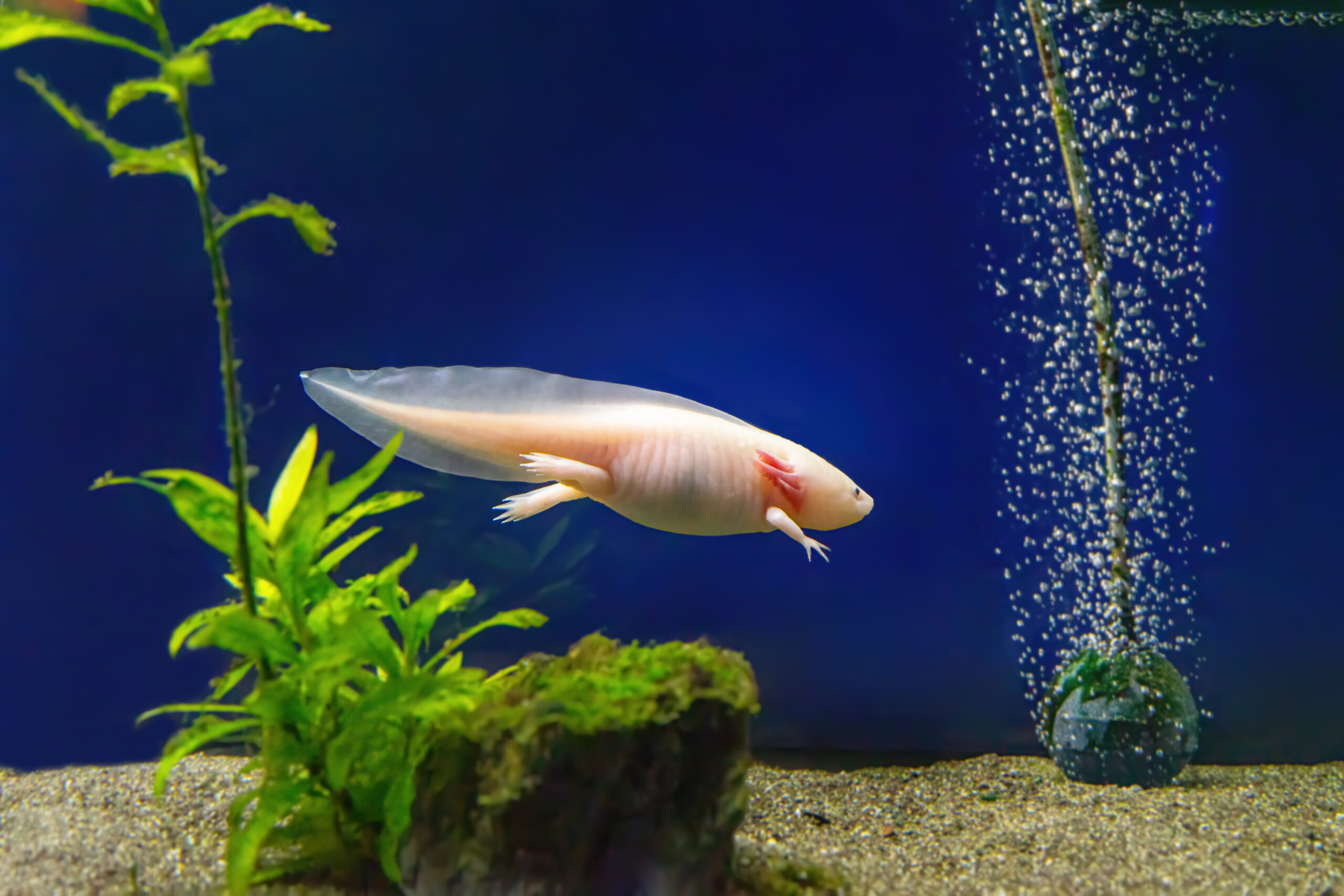
Food
Live or frozen food, which should you choose?
Lire l'article
Health
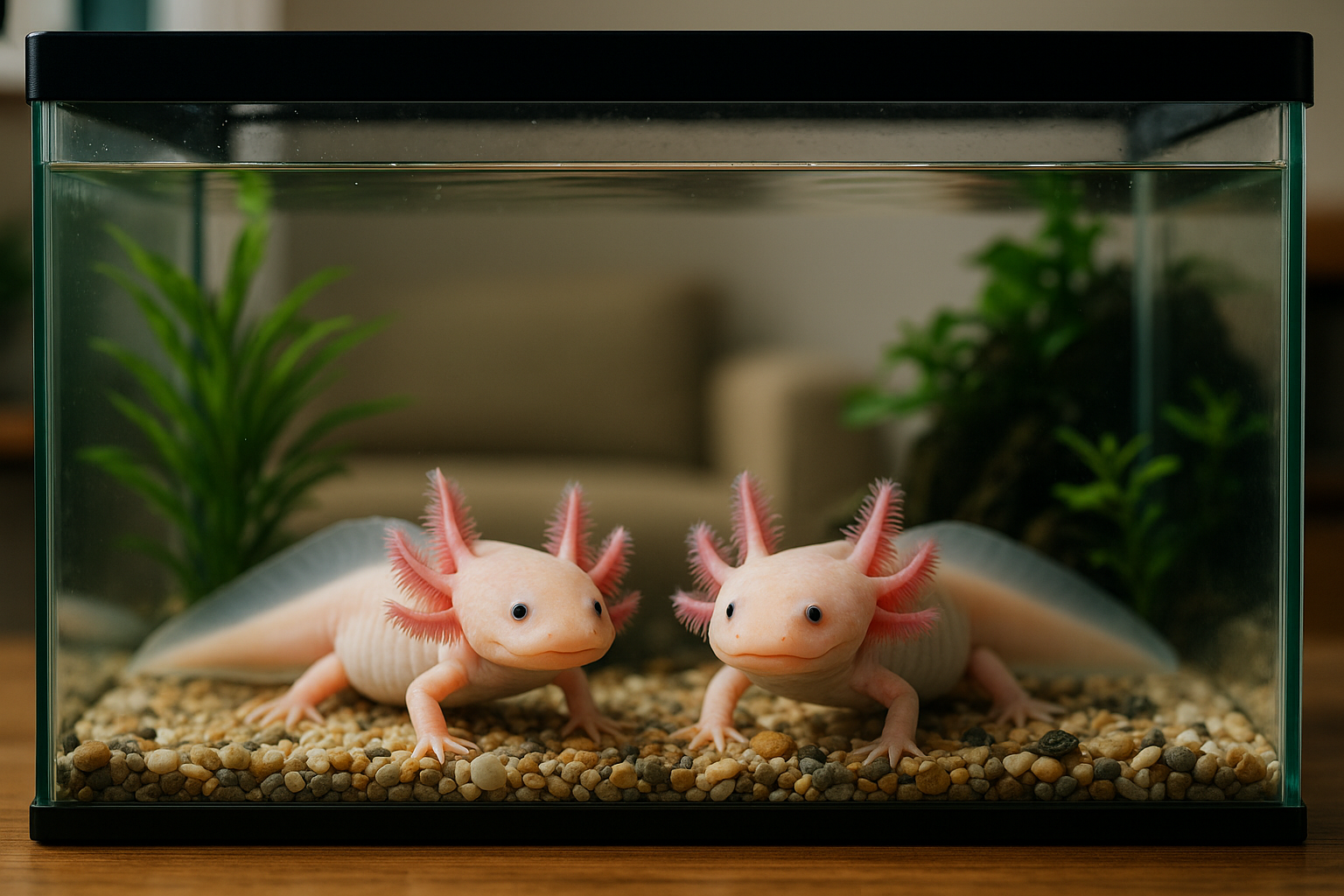
When adopting an axolotl, many owners wonder whether they have a male or a female. Unlike other pets, the differences are not immediately obvious, especially in young individuals. However, it is entirely possible to tell them apart if you know where to look. This article will guide you step by step in identifying the sex of your axolotl once it reaches maturity, using reliable and visual criteria.
Knowing your axolotl’s sex can save you from many surprises. If you have several individuals, it allows you to anticipate behaviors linked to reproduction or territoriality. It is also essential if you wish to carry out controlled breeding or, on the contrary, avoid it altogether. Finally, it may simply satisfy your curiosity as an attentive owner.
It is not possible to determine an axolotl’s sex right after birth or during its first weeks. Sexual differences become visible around the age of 12 to 18 months, when the animal reaches maturity. However, some individuals may show signs a little earlier, especially if they grow quickly.
Before this stage, anything you guess will be speculation. It is therefore recommended to wait until full maturity for a clear answer.
A male axolotl can be identified by several physical features:
These features are easier to spot in healthy axolotls living in a suitable environment. Cloudy water or a stressed animal may hide these details.
Females also have characteristics that make them easier to identify:
These signs become more noticeable as the animal ages. A healthy female may even develop a small, visible “belly” without it being a sign of illness.
It is very common to make mistakes, even for experienced breeders. Here are some errors to avoid:
To correctly identify your axolotl’s sex, follow these tips:
With a bit of practice, you’ll be able to tell the difference at a glance.
If you still have doubts, let time do its work. You can also compare with photos of clearly identified male and female axolotls, or ask for advice on a specialized forum. However, avoid any intrusive or stressful handling just to “find out”.
Identifying the sex of your axolotl is a useful skill that comes with observation and experience. Between the shape of the cloaca, body silhouette, and behavior, you have several reliable clues. And if you are not 100 % certain, don’t worry: in a well-maintained tank, your axolotls will thrive regardless.

Food
Lire l'article
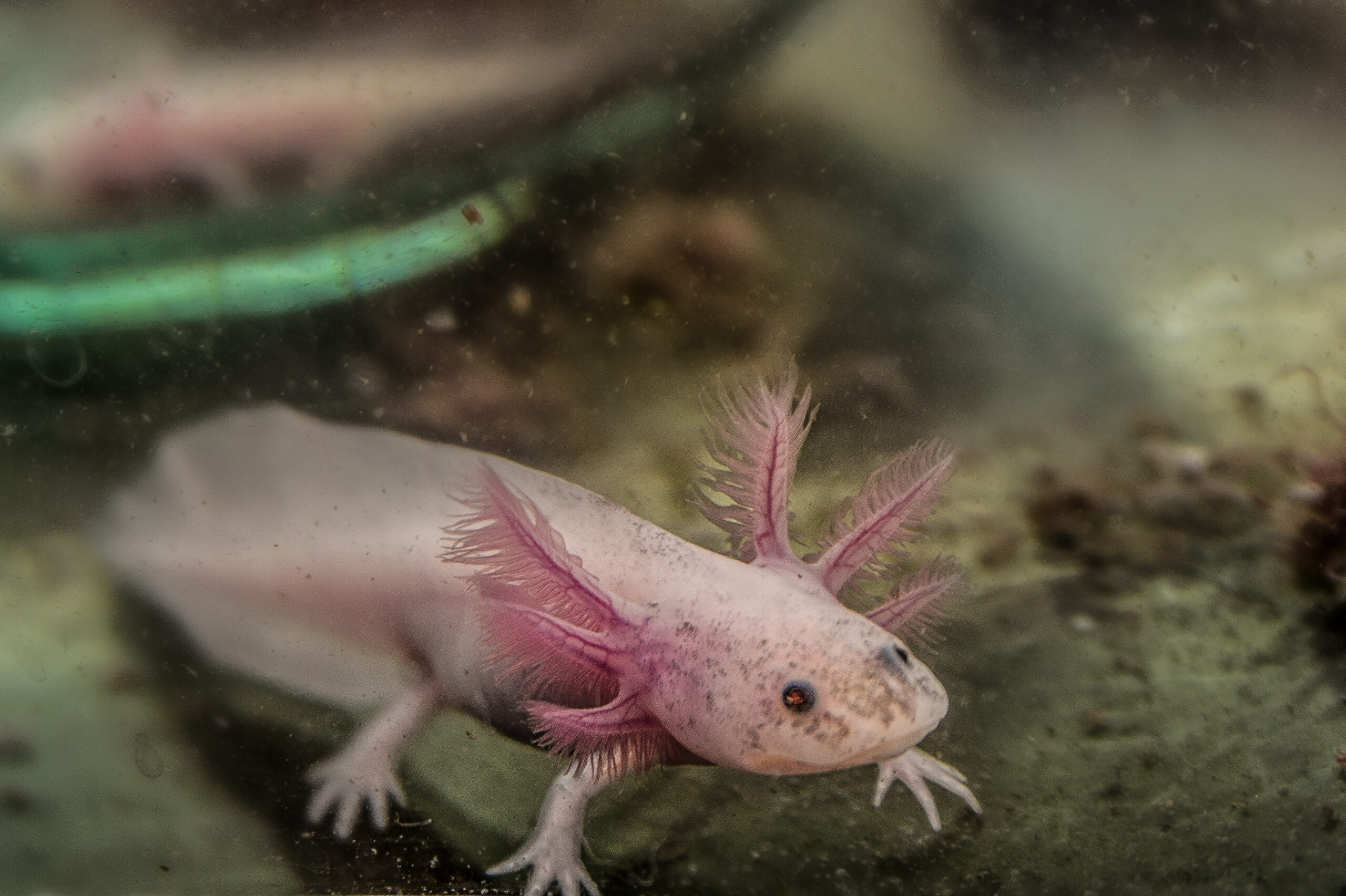
Pratique
Lire l'article
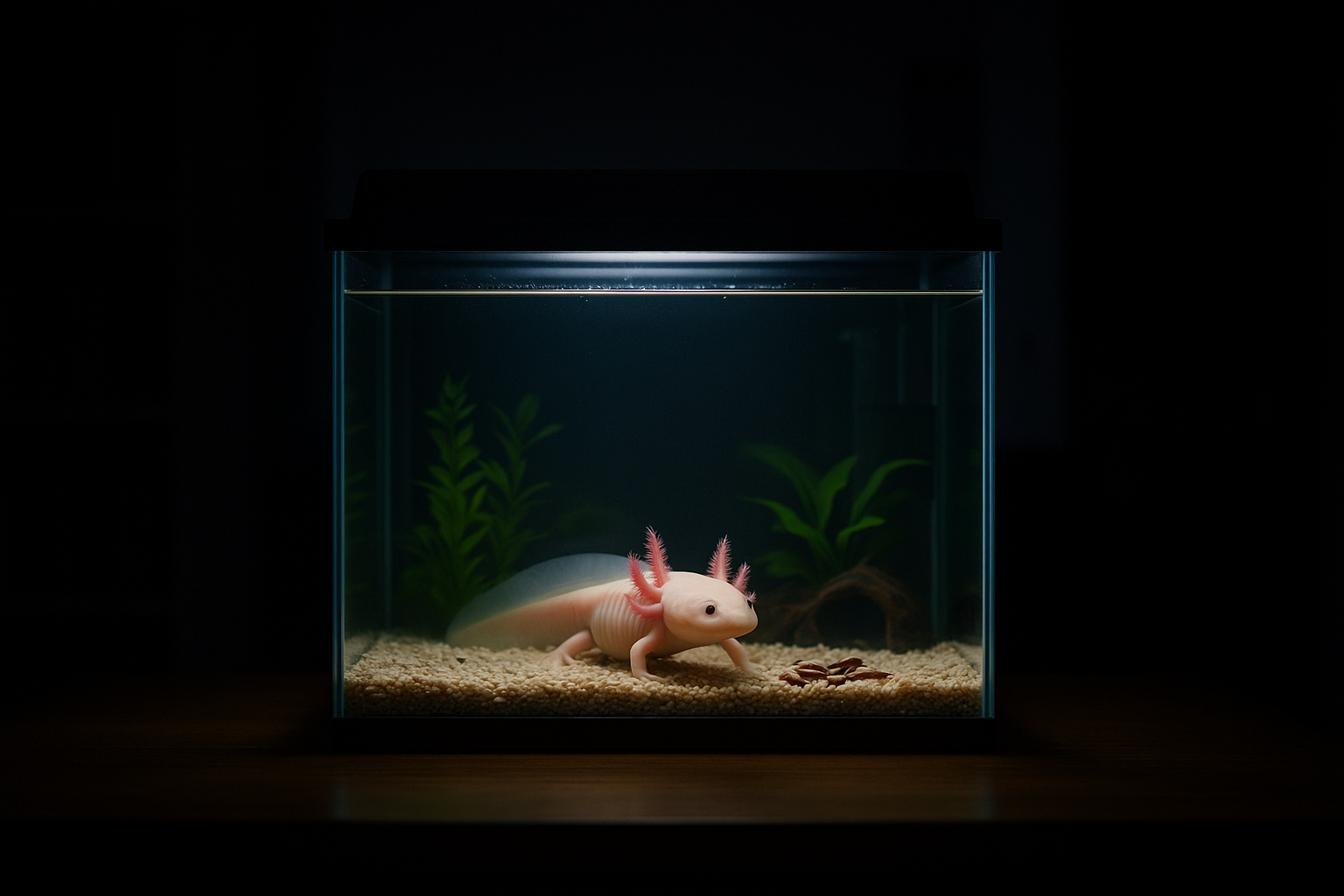
Equipement
Lire l'article
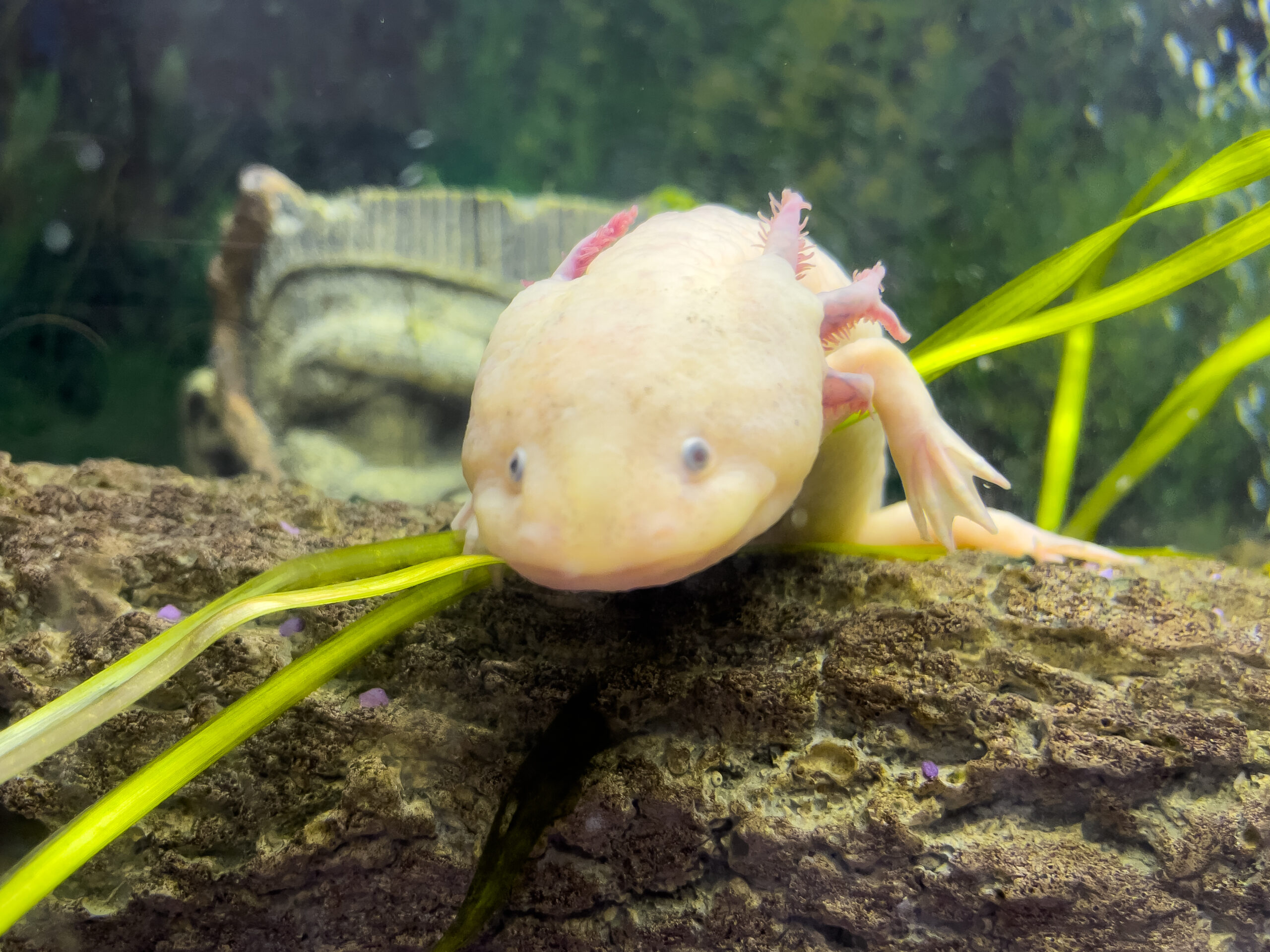
Equipement
Lire l'article
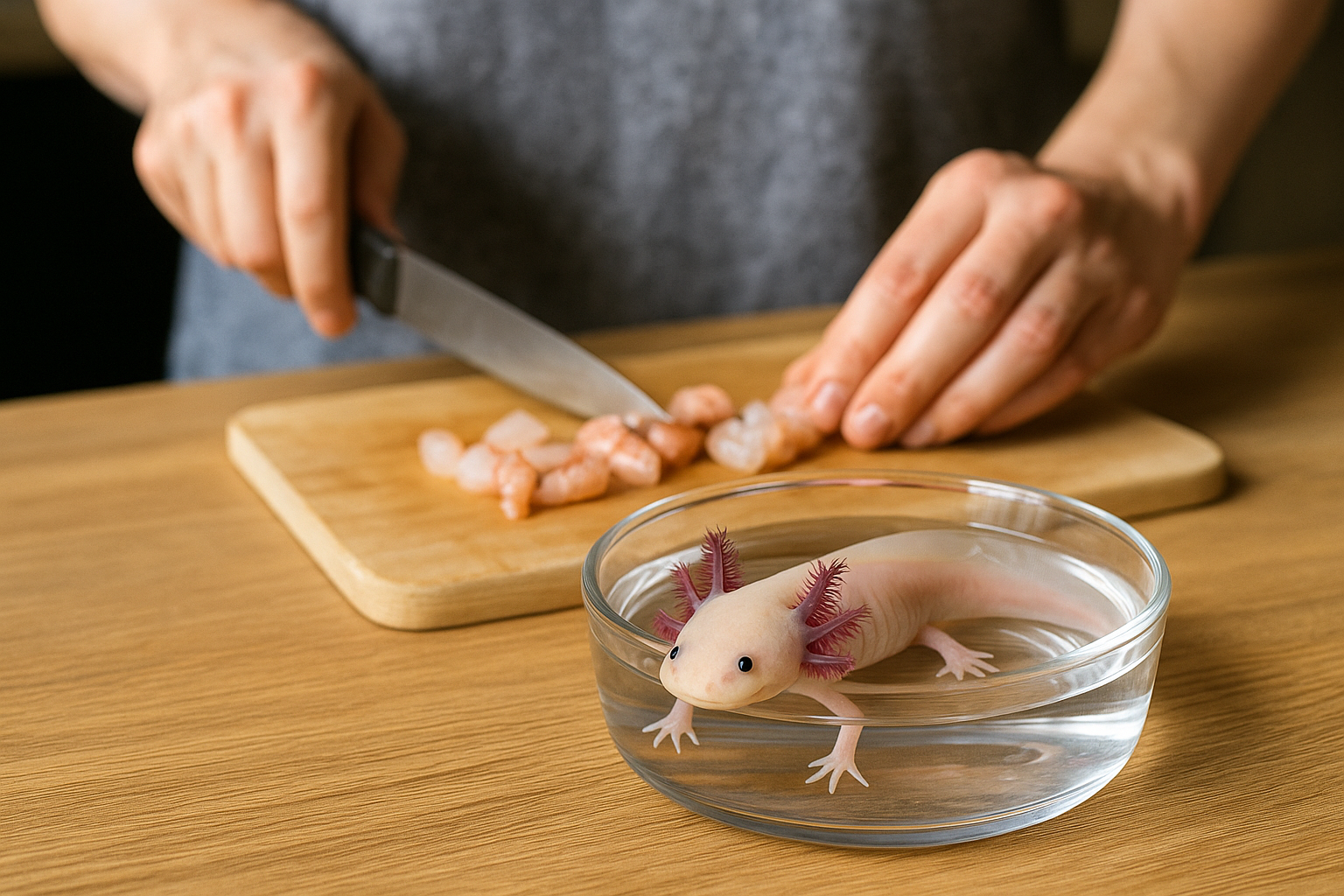
Food
Lire l'article